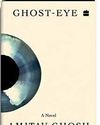My Father, Do Not Rest
Reader's Digest India
|October 2020
WORDS OF Lasting Interest

On 1 February 1948, two days after Mahatma Gandhi’s assassination by Hindutva fanatics, Sarojini Naidu gave an impassioned speech on All India Radio, calling on the nation to remember the Mahatma’s death as a pledge to right action. Here is an edited version of her address.
WHILE WE ALL MOURN—those who loved him, knew him personally, those to whom his name was but a miracle and a legend—though we are all full of tears and though we are full of sorrow, I feel that sorrow is out of place and tears are a blasphemy. How can he die, who through his life and conduct and sacrifice taught the world that the spirit matters, not the flesh, that the spirit has the power greater than the powers of the combined armies of the earth, combined armies of the ages? He was small, frail, without money, without even the full complement of garment to cover his body … how was he so much stronger than the forces of violence, the might of empires and the grandeur of embattled forces in the world?
It was because he did not care for applause. He only cared for the path of righteousness. He cared only for the ideals that he preached and practised. And in the midst of the most terrible disasters caused by violence and greed of men, his faith never swerved in his ideal of non-violence. He believed that though the whole world slaughter itself and the whole world’s blood be shed, still his non-violence would be the authentic foundation of the new civilization of the world and he believed that he who seeks his life shall lose it and he who loses his life shall find it.
Cette histoire est tirée de l'édition October 2020 de Reader's Digest India.
Abonnez-vous à Magzter GOLD pour accéder à des milliers d'histoires premium sélectionnées et à plus de 9 000 magazines et journaux.
Déjà abonné ? Se connecter
PLUS D'HISTOIRES DE Reader's Digest India

Reader's Digest India
Speaking of History by Romila Thapar, Namit Aroram, Penguin Random House, India
Romila Thapar is one of India's most accomplished historians, her work on ancient India being particularly well-received and a part of university curricula around the world.
1 min
December 2025

Reader's Digest India
ME & MY SHELF
Ranjeet Pratap Singh is the co-founder and CEO of Pratilipi, the largest Indian language digital storytelling platform with over 9,50,000 writers in 12 languages and over 30 million monthly readers. Singh was part of the Forbes 30 Under 30 list in 2018.
3 mins
December 2025

Reader's Digest India
HUMOUR in UNIFORM
While our frigate was taking on supplies at sea from a British ship, I noticed three of their sailors pointing to our destroyer’s squadron crest, which was proudly mounted on the side of our ship.
1 min
December 2025

Reader's Digest India
Obeshwar by A. Ramachandran, Oil on canvas, 2022 78 x 192 inches
One of independent India’s preeminent artists, A. Ramachandran (born in 1935), passed away last year, following a long and distinguished career.
1 min
December 2025

Reader's Digest India
Memes for Mummyji by Santosh Desai, HarperCollins India
Santosh Desai, one of Indian advertising's leading lights for over two decades, has a well-earned reputation for spotting cultural trends in Indian cities, as evidenced by his previous book Mother Pious Lady.
1 min
December 2025

Reader's Digest India
Ghost-Eye by Amitav Ghosh, HarperCollins India
In Amitav Ghosh's first novel since Gun Island (2019), we meet a young Marwari girl named Varsha Singh living in Calcutta in the 1960s with her strictly vegetarian family.
1 min
December 2025

Reader's Digest India
"Good Songs Stay Written ..."
Rock legend Bruce Springsteen on music as a time machine, responsibility in the family, and the situation in the USA
3 mins
December 2025

Reader's Digest India
WHEN COMPUTERS WERE FEMALE
THE PIONEERS OF PROGRAMMING WERE SIX WOMEN
6 mins
December 2025

Reader's Digest India
I Am My Mother's Older Brother
As the onset of dementia reshapes their world, a daughter becomes her mother's carer and keeper while navigating grief, duty, and unwavering love
7 mins
December 2025

Reader's Digest India
Small Changes Big Results
While motivation gets us started, discipline is what keeps us going.
3 mins
December 2025
Translate
Change font size

